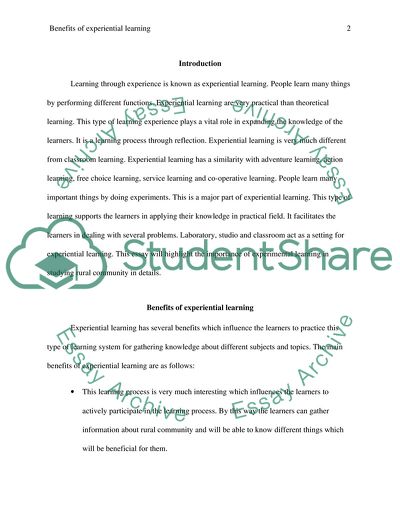Cite this document
(Benefits of Experiential Learning Essay Example | Topics and Well Written Essays - 1250 words, n.d.)
Benefits of Experiential Learning Essay Example | Topics and Well Written Essays - 1250 words. https://studentshare.org/education/1880611-benefits-of-experiential-learning-in-regards-to-lectured-learning
Benefits of Experiential Learning Essay Example | Topics and Well Written Essays - 1250 words. https://studentshare.org/education/1880611-benefits-of-experiential-learning-in-regards-to-lectured-learning
(Benefits of Experiential Learning Essay Example | Topics and Well Written Essays - 1250 Words)
Benefits of Experiential Learning Essay Example | Topics and Well Written Essays - 1250 Words. https://studentshare.org/education/1880611-benefits-of-experiential-learning-in-regards-to-lectured-learning.
Benefits of Experiential Learning Essay Example | Topics and Well Written Essays - 1250 Words. https://studentshare.org/education/1880611-benefits-of-experiential-learning-in-regards-to-lectured-learning.
“Benefits of Experiential Learning Essay Example | Topics and Well Written Essays - 1250 Words”. https://studentshare.org/education/1880611-benefits-of-experiential-learning-in-regards-to-lectured-learning.


